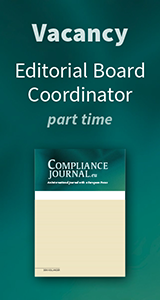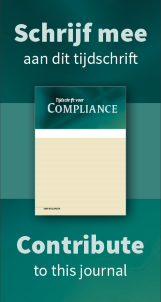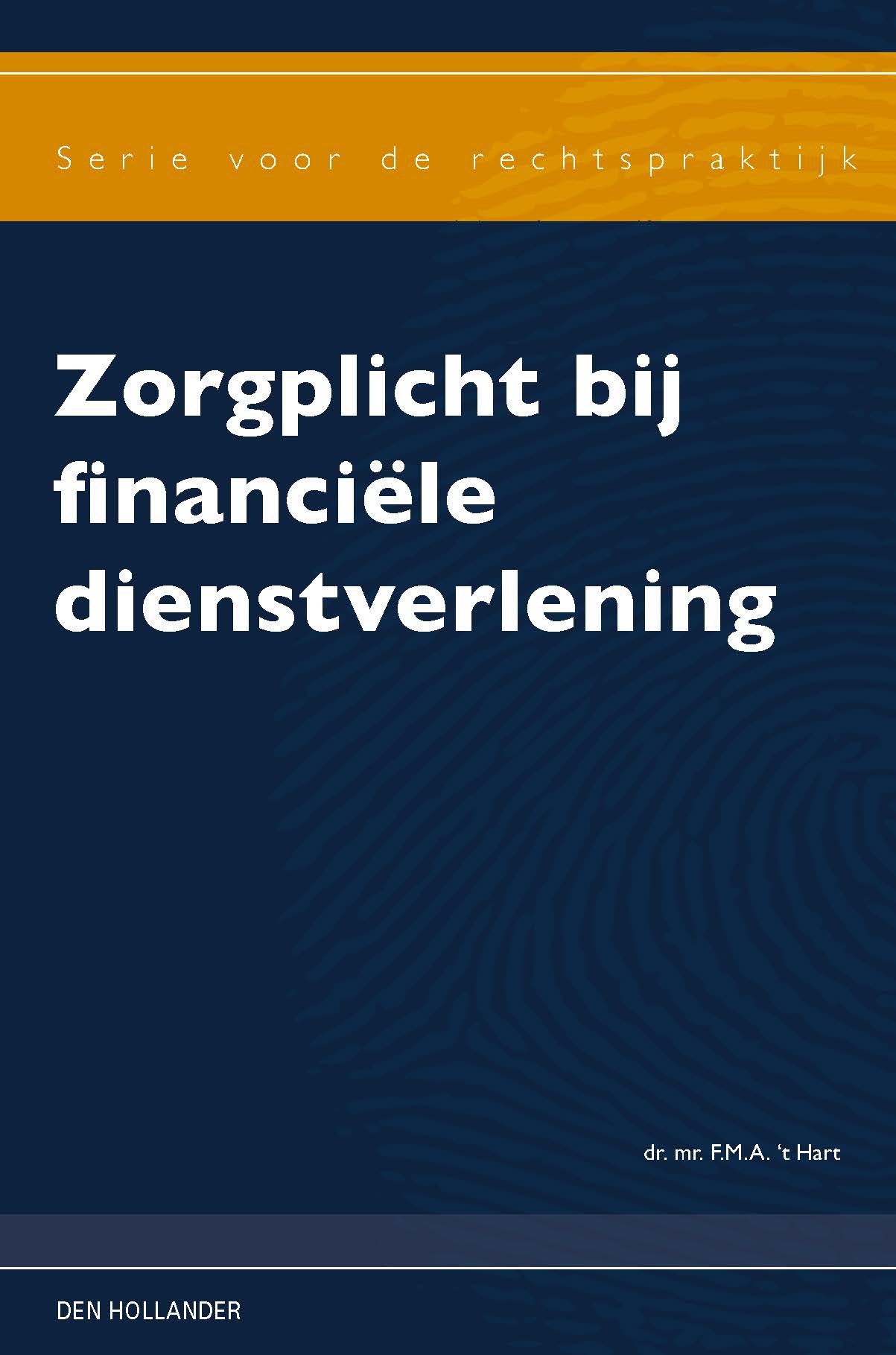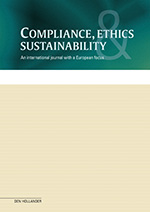Editorial
Het artikel is in de opmaak van het tijdschrift rechts als pdf beschikbaar.A whistleblower is a person, often an employee, who reveals information about illegal, immoral, illicit, unsafe or fraudulent activities within a private or public organization. Whistleblowers can have an important role in disclosing unethical behaviour. But blowing the whistle is not without risks: whistleblowers often face exclusion or retaliation within and outside the organization they work for.
Earlier this year, new legislation aimed at protecting whistleblowers became effective in the Netherlands. In this issue, we review this legislation and its (possible) effects. Does the new legislation ensure whistleblowers are effectively protected? We provide information and inspiration on what organisations can do to implement the new legislation and protect whistleblowers. And also, we look at what organisations need to do from the perspective of whistleblowers to create an environment in which they feel free and safe to speak up.
The preview per article is written in the language of the article.
Laws in Europe: The Netherlands vs EU Country Comparison
Jan Stappers
In his article for this edition Jan Stappers elaborates on the transposition of the EU Whistleblower Protection Directive into Dutch law. Then, a comparison with other EU countries follows. Some EU countries have taken their whistleblowing laws further than the Netherlands. The article specifically focuses on differences in the implementation by Denmark, France, Sweden, Germany and Italy. These countries that go beyond may set new standards for all. Stappers concludes that, as countries, one by one, transpose the Directive into their national laws, those that go beyond may set new standards for all. Within a few years after implementing the new laws, how the Directive has functioned will be evaluated. The scope of this Directive, both on an EU and national level, should be extended over time, bringing further clarity on whistleblowing management and protection according to Stappers.
Central vs. Local Whistleblowing Channels: Towards an Effective Implementation of the EU Whistleblower Directive in Multinational Organisations
Sharon Oded and Jessie Steinebach
This article presents the key standards set forth by the Whistleblower Directive and suggests that a literal reading of the Directive may support the conclusions that establishing a central whistleblowing system may satisfy the obligations set forth by the Directive. That said, it also explores the different interpretation of the Directive by the European Commission, according to which entities with 50 or more FTEs are required to implement internal whistleblowing channels. That requirement, according to the Commission, is not satisfied by establishing a centralised whistleblowing system at group level. All medium-sized and large companies belonging to a group remain, according to the Commission, obliged to have their own whistleblowing channels. A review of local law in all Member States reveals that while 9 Member States follow a similar approach to the European Commission´s, many of the other Member States follow a different approach. This leads to the proposal of a hybrid whistleblowing system, composed of both a central and local whistleblowing channels, while preserving the organisation the ability to influence a reporter’s choice through information sharing and nudging.
De waarheid aan het licht wanneer vrijmoedig vrijuit spreken niet meer kan; Over de kern van de Wet bescherming klokkenluiders en welke keuzes je kunt maken bij de implementatie
Cora Wielenga
De auteur, voorzitter van het Compliance Instituut, gaat haar bijdrage in op de nieuwe Wet bescherming klokkenluiders (Wbk). Deze wet is volgens auteur een verbetering ten opzichte van voorganger Wet Huis voor Klokkenluiders, omdat de rechten van medewerkers beter beschermd worden. Wielenga beschrijft in het artikel de aanleiding van de wet toe en licht vervolgens in tien punten de kern van de wet toe. Auteur gaat daarbij in op de keuzes en dilemma’s die je als werkgever bij de implementatie tegenkomt. Waar relevant deelt zij implementatie-adviezen met werkgevers. Juist ook om de gaten in de wet als goed werkgever in de interne meldregeling te dichten.
Betere bescherming klokkenluiders vraagt nog veel aandacht; Huis voor Klokkenluiders helpt door advies, preventie en onderzoek
Wilbert Tomesen
In dit artikel deelt de voorzitter van het Huis van Klokkenluiders opvallende zaken en lessons learned van de afgelopen jaren, die kunnen bijdragen aan het dagelijkse werk van integriteitsmanagers, compliance officers en werkgevers bij integriteitsbevordering. Vragen worden beantwoord zoals wanneer en naar wie verwijs je een werknemer met een vermoeden van een misstand? Hoe leren werkgevers melders te waarderen in plaats van af te serveren? Hoe werkt het Huis en waarvoor kun je wel of juist niet bij het Huis terecht? En hoe kunnen we als samenleving leren van eerdere misstanden? In een ideale wereld zou het Huis voor Klokkenluiders niet meer nodig zijn. Maar daar zijn we volgens het Huis nog niet.
The hazards of blowing the whistle and how to protect those who speak up; What do we (still not) know from whistleblowing research
Kim Loyens
In her article for this edition, Kim Loyens focuses on the risks whistleblowers face, especially in sectors with implicit rules to keep silent when noticing unethical behaviour. They face discouragement and exclusion. Legislation alone is not sufficient to effectively reduce the risks whistleblowers are exposed to. Organisations need to create open and safe environments, in which people feel safe to raise concerns and management show behaviour based on high ethical standards.
The Attorney-Investigator and Independence: A Delicate Balance
Eline Rensink
This article by Eline Rensink describes how law firms have increasingly been relied on to conduct investigations into signals brought forward by whistleblowers. These investigations are not rarely referred to as ‘independent’. This qualification raises debate about impartiality and independence, as the investigation is commissioned by the undertaking where the reported behaviour took place. In addition, attorney-client privilege may – if applied without restrictions – have implications for the position of whistleblowers and other third parties.
The Juridification of Dutch Corporate Governance
Bart Jansen
This contribution by Bart Jansen, legal philosopher and business ethicist, is an edited version of chapter 4 from his dissertation defended in 2022 at Nyenrode Business University. The author starts by stating that in the Netherlands self-regulation is considered a silver bullet by lawyers and ethicists alike. The concept of self-regulation is being analysed which also includes ideas on self-regulation as autonomy and heteronomy as well as the ethics in self-regulation. The focus of article then lies with the Dutch Corporate Governance Code. This code has achieved the optimum form of juridification - enshrinement in the law – and thereby encapsulates the tension between juridification and ethical contemplation. The journey from autonomous ethical reflection to legal compliance driven by regulations underscores the challenges of reconciling ethical introspection with externally generated codes. The author concludes by stating that ultimately, the exploration of this dynamic encourages us to not only contemplate the effectiveness of self-regulation but also the deeper question of how ethical sensitivities thrive within the intricate fabric of decision-making within enterprises.
Uit de boekenkast van de bedrijfsethiek
Edgar Karssing
Uiteraard tot slot en zoals altijd de rubriek Uit de boekenkast van de bedrijfsethiek van Edgar Karssing. Karssing bespreekt rolmodellen als leermeesters bij de morele educatie. Hij laat zien dat het niet erom gaat gedrag te kopiëren, maar dat je leert van rolmodellen door af te kijken en vervolgens te oefenen met het in de praktijk brengenvan hun lessen. In de twintigste eeuw lag de nadruk bij morele educatie op het leren van moreel redeneren. En in organisaties veelal op het leren wat de regels zijn en via straffen en belonen goed gedrag afdwingen. Morele educatie via rolmodellen heeft zeker aandacht voor het hoofd, maar vooral ook voor hart – waarom zou ik het doen? – en handen – hoe doe ik het? Het gaat ervan uit dat morele educatie verder gaat dan grenzen stellen, dat mensen ‘werk in uitvoering’ zijn die hun denken, voelen en doen kunnen cultiveren. En daarmee nooit klaar zijn. Gelukkig krijgt morele educatie via rolmodellen de laatste jaren meer aandacht en Karssing neemt ons mee in de analyse over dit onderwerp. Rolmodellen zijn er in alle soorten en maten, leren we, en Karssing geeft ons aan hoe we in de drie stappen van kiezen, analyseren en oefenen we ons de kunst van het kritisch en bewust afkijken eigen kunnen maken. Drie oefeningen worden gegeven om met rolmodellen aan de slag te gaan. ongetwijfeld een mooie aanvulling op de trainingen die gericht zijn op kennisoverdracht.
On behalf of the editorial board we hope you enjoy this edition,
Renske Fikkers, Frank Segers en Anne-Claire Wilmink




